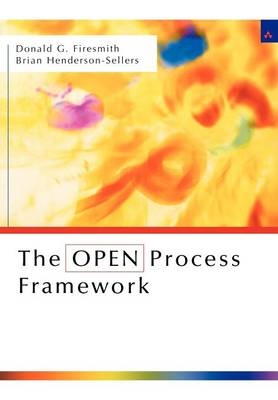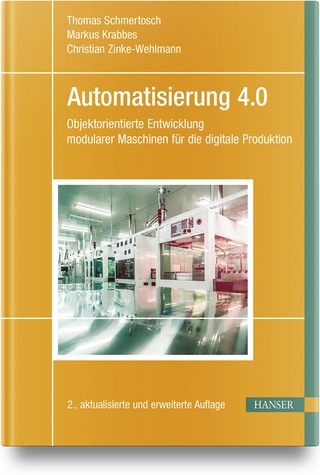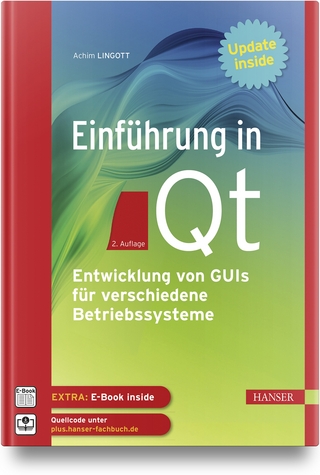
The OPEN Process Framework
Addison Wesley (Verlag)
978-0-201-67510-8 (ISBN)
- Titel ist leider vergriffen;
keine Neuauflage - Artikel merken
"[The authors] have done an excellent job of bringing forth the power and the flexibility of this most useful framework in an easy to read and understand introduction. Although it has been written to be an introductory text in OPF, I found [it] also readily useable as a handbook for initial process definition, an accessible treatment of important issues in software process design, and a textbook in OPF."
Houman Younessi
Associate Professor of Computer Science, Rensselaer Polytechnic Institute
The OPEN Process Framework provides a template for generating flexible, yet disciplined, processes for developing high-quality software and system applications within a predictable schedule and budget. Using this framework as a starting point, you can create and tailor a process to meet the specific needs of the project.
Donald Firesmith is President of Firesmith Consulting where he provides high-impact consulting and training in object development. He has worked exclusively with object technology since 1984. During this time, he has fulfilled many roles including director of data processing, technical project leader, requirements engineer, architect, designer, programmer, tester, process engineer, configuration manager, data manager, quality engineer, and trainer. The author of five books on object technology, including Documenting a Complete Java Application using OPEN, he is internationally known as an object methodologist specializing in the areas of project management, requirements engineering, system and software architecting, and testing. For the last four years he has concentrated on web development including business and technical strategy, digital branding, and website architecting. Brian Henderson-Sellers is Director of the Centre for Object Technology Applications & Research and Professor of Information Systems at the University of Technology, Sydney. He is author of nine books on object technology and is well-known for his work in Object Oriented methodologies and metamodelling (MOSES, COMMA and OPEN) and in Object Oriented metrics. He was recently voted number 3 in the Who's Who of Object Technology (Handbook of Object Technology, 1999, Appendix N) and, in July 2001, was awarded a DSc by the University of London for his extensive and significant contributions to object-oriented methodologies.
Contents Preface xi Part I Introduction 1 1 Processes and Process Frameworks 3 1.1 Processes in Information Technology 3 1.1.1 Software applications 4 1.1.2 Software-intensive systems 4 1.1.3 Business modeling 5 1.1.4 Component-based development (CBD) 5 1.1.5 Organizational scope 6 1.1.6 Stages in the life cycle 6 1.2 The need for process 7 1.3 What is a process? 10 1.4 From process to process framework 15 1.5 What is a process framework? 22 1.6 Specification for a process framework 26 1.6.1 Completeness 27 1.6.2 Flexibility 29 1.6.3 Rigor 30 1.6.4 Object orientation 30 1.6.5 Component-based development (CBD) 33 Summary 33 2 OPEN Process Framework Overview 37 2.1 OPEN 37 2.2 The OPEN Process Framework 43 2.2.1 Work Products 44 2.2.2 Producers 50 2.2.3 Endeavors 52 2.2.4 Work Units 52 2.2.5 Stages 55 2.2.6 Languages 58 2.3 Framework usage 59 2.4 OPEN compliance 61 Summary 61 Part II Process Components and Usage
Guidelines 63 3 Work Products 65 3.1 Classes of Work Products 65 3.1.1 Applications 66 3.1.2 Architectures 66 3.1.3 Components 68 3.1.4 Metrics 68 3.1.5 Models 69 3.1.6 Increments 71 3.1.7 Requirements 71 3.1.8 Diagrams 72 3.1.9 Documents 74 3.2 Management Set of Work Products 74 3.3 Engineering Work Products 76 Summary 83 4 Producers 85 4.1 Direct Producers 85 4.1.1 Person 85 4.1.2 Roles 85 4.1.3 Tools 91 4.2 Indirect Producers 91 4.2.1 Teams 91 4.2.2 Organizations 94 4.2.3 Endeavors 95 Summary 95 5 Work Units 97 5.1 Activities 98 5.2 Tasks 102 5.3 Techniques 108 5.4 Assertions 109 5.4.1 Pre-conditions 109 5.4.2 Post-conditions 109 5.4.3 Invariants 110 5.5 Work Performances 110 contents # 5.5.1 Task Performances 110
5.5.2 Work Flows 111 Summary 111 6 Stages 113 6.1 Cycles 113 6.1.1 Life Cycles 113 6.1.2 Development Cycles 114 6.1.3 Life Cycle Models 114 6.2 Phases 119 6.2.1 Initiation 119 6.2.2 Construction 119 6.2.3 Delivery 119 6.2.4 Usage 120 6.2.5 Retirement 120 6.3 Builds 120 6.4 Milestones 120 6.4.1 Management Milestones 120 6.4.2 Technical Milestones 121 6.5 A Typical Life Cycle Configuration 121 6.6 Timeboxes 122 6.7 Relationship of Stages to Work Units 122 Summary 124 7 Languages 125 7.1 Introduction 125 7.2 Natural Languages 125 7.3 Modeling Languages 127 7.3.1 Metamodel 127 7.3.2 Constraint Language 128 7.3.3 Notation 129 7.3.4 Example Modeling Languages 130 7.4 Implementation Languages 131 7.4.1 Coding Languages 131 7.4.2 Database Languages 132 7.4.3 Interface Languages 133 Summary 133 # contentscontents # E Work Units 241 Activities 241 Project Management 241 Project Initiation 242 Project Planning 243 Configuration Management 243 Risk Management 243 Metrics Engineering 244 Quality Engineering 245 Process Engineering 245 Environment Engineering 246 Website Development 247 Requirements Engineering 249 Architecting 250 Design 251 Component Selection 252 Build 253 Implementation 253 Integration 254 Evaluation 255 Testing 256 Deployment 257 Business Engineering 259 Reuse Engineering 260 Programme Management 261 Resource Planning 261 Training 262 Organization Assessment 263 Pre
| Erscheint lt. Verlag | 6.12.2001 |
|---|---|
| Verlagsort | Harlow |
| Sprache | englisch |
| Maße | 187 x 232 mm |
| Gewicht | 630 g |
| Themenwelt | Informatik ► Software Entwicklung ► Objektorientierung |
| ISBN-10 | 0-201-67510-2 / 0201675102 |
| ISBN-13 | 978-0-201-67510-8 / 9780201675108 |
| Zustand | Neuware |
| Haben Sie eine Frage zum Produkt? |
aus dem Bereich


